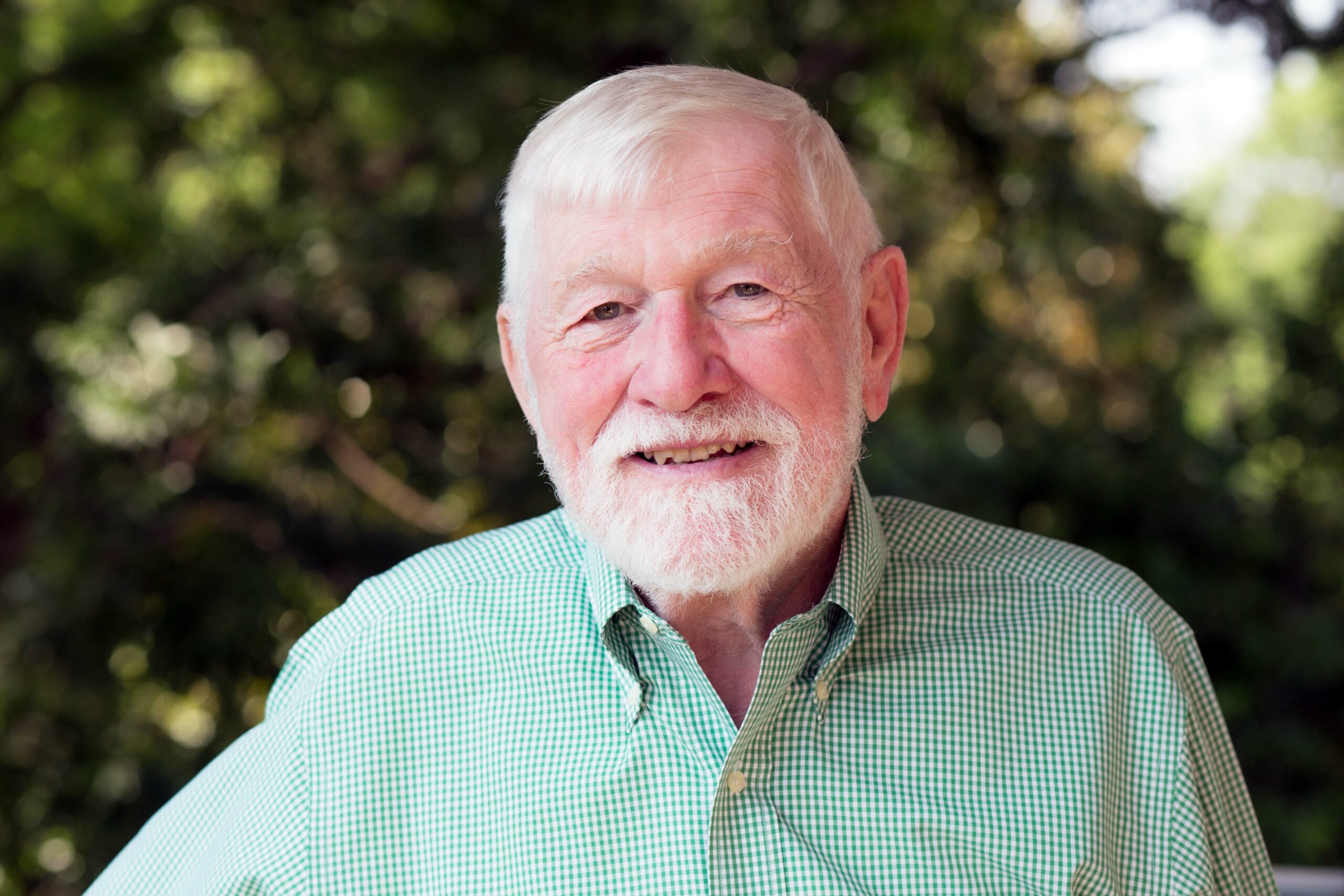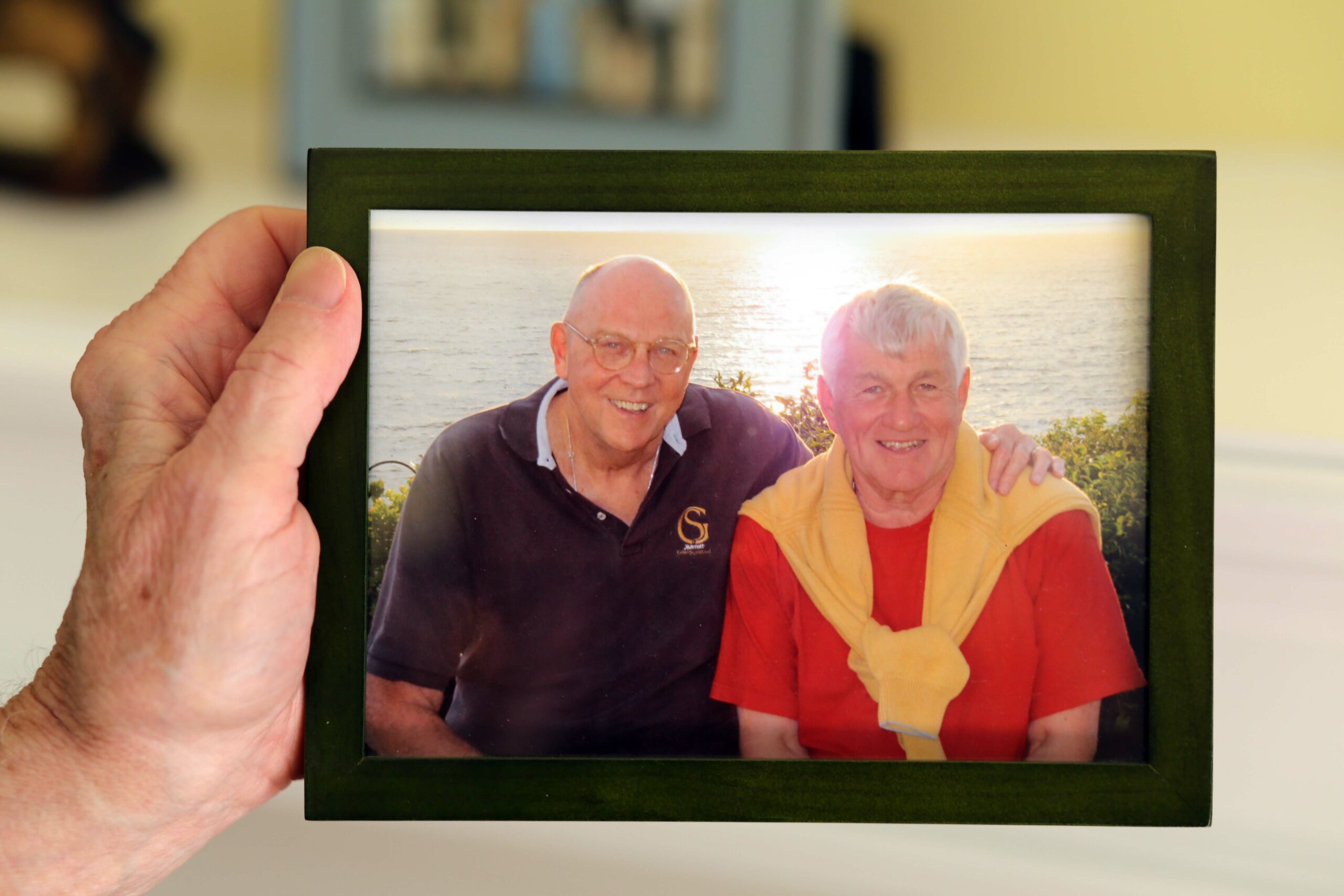
David R. Bender, Ph.D. is a Renaissance man, whose generous support of Food & Friends goes back to 1997. For 22 years, he was the Executive Director of the Special Libraries Association and traveled the world advancing information science. He enjoys gardening and colonial history, especially books about John Robinson, the pastor to the Mayflower Pilgrims, and FaceTime calls with his four grandkids.
David was happily married to his husband Phil Baker for an incredible 46 years before Phil passed away in 2020. The couple lived, loved, and worked in Washington, D.C., and Food & Friends found a special place in their hearts. This March, David established the David R. Bender and D. Philip Baker Endowment for Direct Services with a naming gift of $50,000. By investing in endowment, David makes an immediate and lasting impact by supporting our kitchen and delivery operations in perpetuity. And by including Food & Friends as a beneficiary of his estate plans, David’s commitment as a Legacy Society member will add a future six-figure gift to his named endowment and further carry on David and Phil’s legacy of compassion to help a new generation of neighbors facing serious illness years from now. We sat down with David to hear his reflections on our mission.
How did you first hear about Food & Friends, and what was your connection to the mission in the beginning?
My real first connection came through two friends who volunteered. They had started when Food & Friend was still in the basement of the Westminster Presbyterian Church. I was fascinated with their love of Food & Friends and their commitment to the organization.
I had several close friends who died around that time from AIDS (acquired immunodeficiency syndrome). Because of the two guys I knew doing outreach, I felt a sense of commitment to a neighborhood and community organization.
I thought Food & Friends was doing important things, and I thought my little donation at the time might just help to put food on someone’s table or bring someone with a friendly face to say hi once a week. That was how it all got started.
I was living on Swann Street in Dupont Circle, and at that time, the street was about 80% gay. We were seeing a lot of our neighbors becoming ill, and many of them were receiving support from Food & Friends. My next-door neighbor and I were remarkably close, he and his partner both died within a couple of months of each other.
Whitman Walker Clinic had moved to 14th Street NW, and we were all watching what was happening with the epidemic. We were drawn to Food & Friends because of their excellent work.
How would you describe Food & Friends to others, a family member or loved one?
I have talked about this a lot with my kids, especially after establishing the endowment. I talked to them about how important community outreach is. Food & Friends had a concentrated beginning during the AIDS epidemic, and what the early leaders were doing had a spiderweb approach.
It was always a community service that embraced people of different nationalities, diverse cultures, different beliefs, and whoever was in need. It is much more than just a food program; it is a support program.
To this day, there are many people who are dealing with a life-challenging illness alone who look forward to companionship, connection, and neighborly outreach. That is one of the things I am most interested in.

Do you have any advice for other people who may want to get involved in supporting Food & Friends?
People often make the mistake of believing that all organizations are well-funded, but that is not always true. At Food & Friends, everyone’s contributions and donations support the cause. One of the things that intrigues me is that Food & Friends has a durable foundation, and a good management style.
These things have helped Food & Friends create a supportive community over time for those in need. Those of us that are not in need of nutritious food assistance, still have a role to play to support the community in a broader scope.
Food & Friends encompasses people of all varieties, needs, and situations. It is for everyone.

Your endowment has a special name in honor of your late husband Phil. Could you share what the naming of the endowment might have meant to him, or how that naming made you feel?
It was something I had not thought about until Marilyn Turner with Food & Friends planted the idea in my head. When she talked about both the long-term and immediate impact of the endowment, I felt 100% solid about the idea.
I had not yet thought specifically of Phil and his connection to Food & Friends. He had supported the organization himself for a while. It was a gift for me to be able to bring him into the endowment and carry on his legacy as well.
He and I were together for 46 years, and over that time, we had supported several community groups and gay organizations, and other instances where people were in need. But locally, Food & Friends has always been a shining example for us of how to get involved in the community. We were able to support both the gay community, and others in need.
There was a warm and fuzzy connection, and it all goes back to our friends doing outreach in the early days of the AIDS epidemic. It all grew and was nurtured from that beginning. I am so happy we were able to do the endowment and when I think about Phil, I know he is delighted as well to have been a big part of that.
If you are interested in joining David by supporting Food & Friends’ endowment and/or including Food & Friends in your estate plans (or interested in learning more), please contact Marilyn Turner, Director of Development, Individual Philanthropy, at (202) 269-6849 or mturner@foodandfriends.org. More information can also be found on our website.